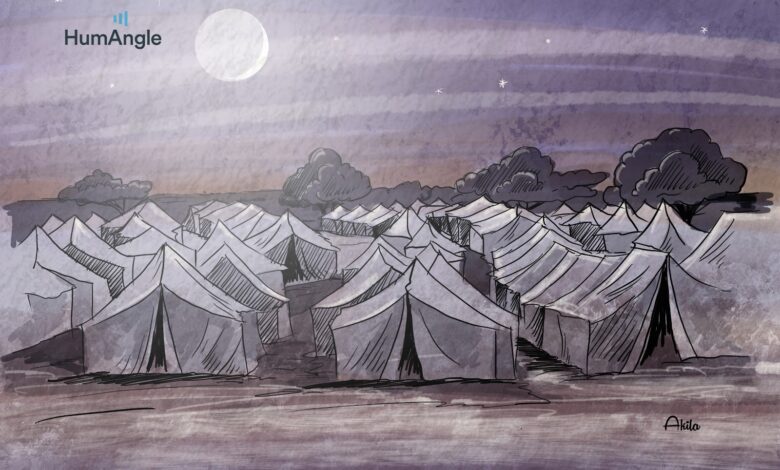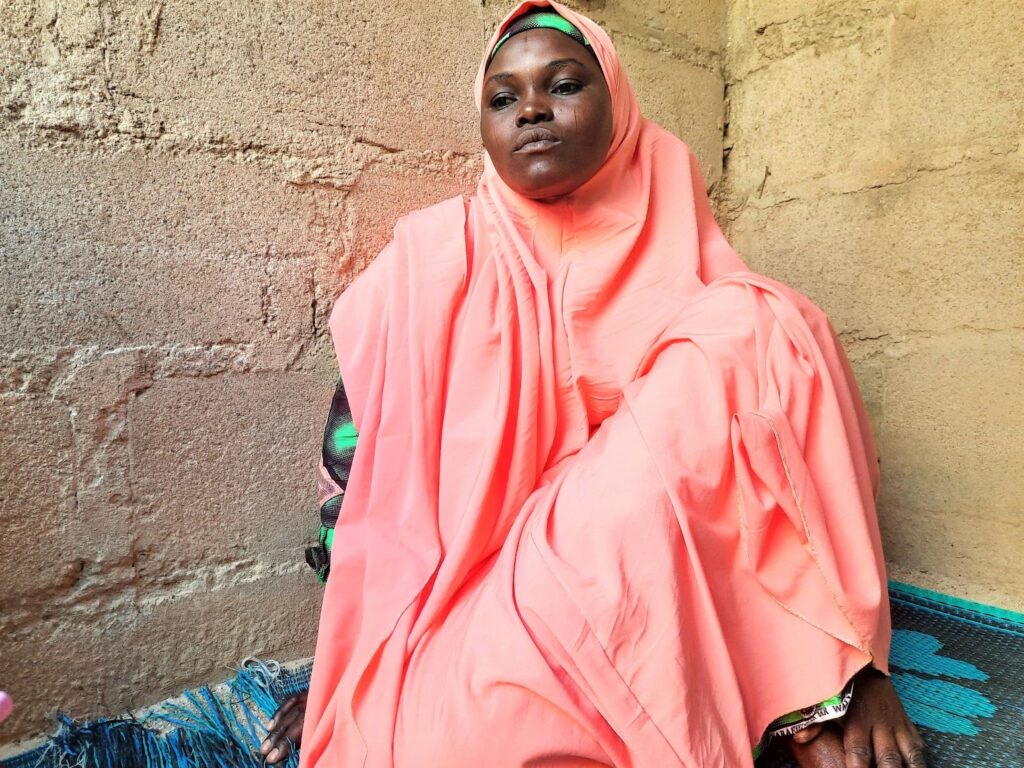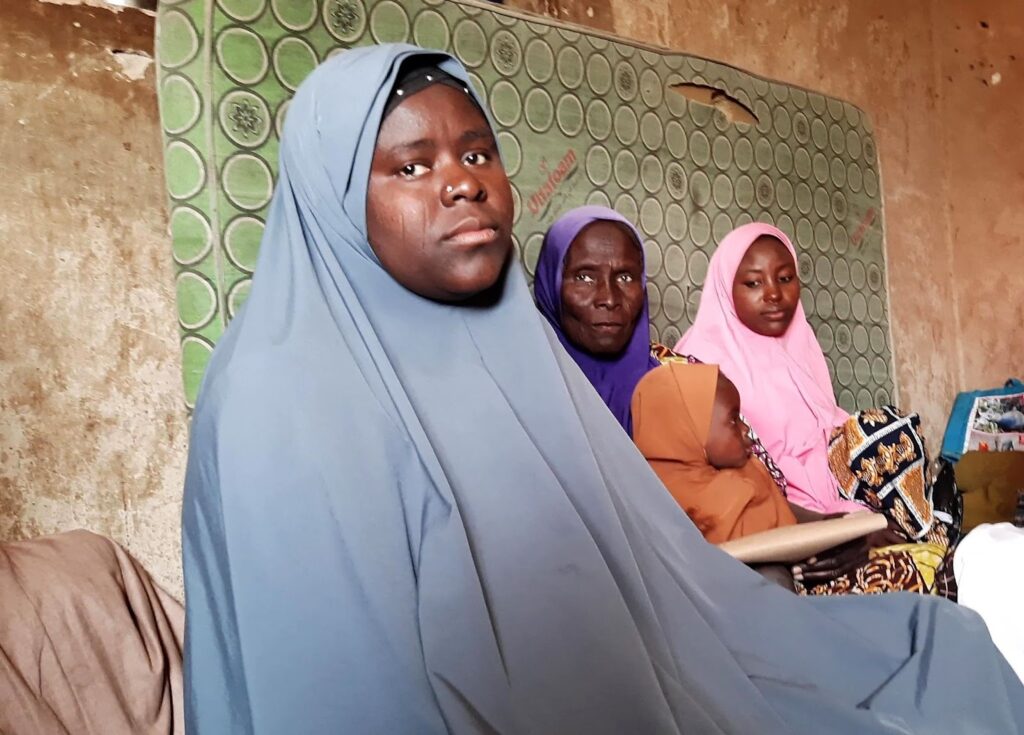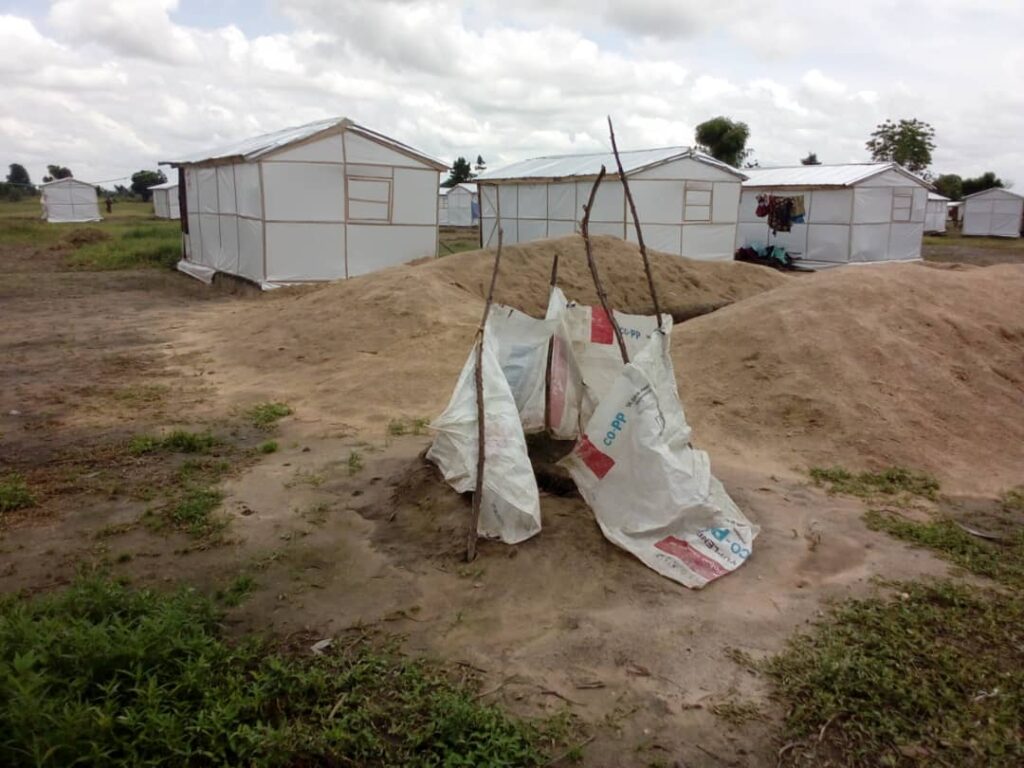What Does ‘Going Home’ Mean To The Displaced?
The Borno state government in Nigeria has now resettled displaced persons back to their ‘homes’. They were formerly resident in camps in the state capital, Maiduguri. We asked some of them how this ‘resettlement’ felt after about eight years of camping. Here are their responses, unfiltered.

“Hauwa, we have been violated [by the insurgency]. We have been dishonoured and dehumanised: Us, our husbands, our children. It’s been eight years of this. No child of ours has ever been to a school since, or gotten an Islamic education. No mother has been able to sufficiently train her children because from the moment we wake up, we start scouting for the food we can eat that day. All because of this tragedy. Our children have no home training; the only thing they do from the moment the day breaks is to go to the forest to search for firewood. When he goes to the forest, who knows what he gets up to there? Who can watch him and correct him? A child with no access to school or proper Islamic education? What is the use? We have left everything to God. We have been cheated. We will get justice in the hereafter.”
– Yakura Kumshe, displaced from Kumshe, now resettled to Nguro Soye.

“This town, Nguro Soye, is where my roots are. It is where I am from, where my father and mother were both born. Before we fled, there was no Boko Haram. We had peace. There was work, there were Islamic schools, there were schools, hospitals, everything. But look at the town now; it is a complete forest. All of it. Authorities have not rebuilt it … at the time we fled, there were trees on the road. Now, the roads are deserted. This village, it is my home, but I can no longer even recognise it. It was burned down completely. No schools, no hospitals, nothing at all. We don’t even have good network coverage anymore.”
– Fatima Bukar, displaced from Nguro Soye in 2014 when the town fell to Boko Haram. She has now been resettled back there by the Borno state government.

“When we first fled Salami and went to Banki, my children became so malnourished that they had to be admitted to the hospital. We were hospitalised at the malnourished centre. After some time, they recovered and we were discharged. My husband was one of those detained by soldiers when we were migrating. He was not released until years later. When he came back, we were at the Dalori camp in Maiduguri. By Allah’s doing, he took ill when he returned. We were at the hospital for close to four months and he underwent surgery. But as Allah would have it, he still died after. He left me with 10 children. I am both mother and a father. After that, we were told that we would be relocated to our homes by the government. Instead, we were brought here to Soye. Life changed completely after that. This is not our home. We are suffering. There is no water even.”
— Kulthum, 40, displaced from Salami, now resettled to Nguro Soye.

“It’s been eight years since I became displaced. We were fleeing from Banki when soldiers came and fetched all of us and took us away to Giwa barracks. And then we were transferred to Maximum prison, where we spent five years and some months in detention. Then we were sent to Gombe for deradicalisation. Finally, some of us were freed and brought to the Dalori camp in Maiduguri. A few months later, the government said they would take us home. But to this day, I have not seen my home. They simply brought us here to Soye. They gave us some money and food but it has finished. Since we came here, nothing. There is the problem of food, hospitals, and even to get water, we have to first pull money together. Now we have to get firewood to sell before we can eat. These days we can’t even go there because the soldiers have banned us from doing so. There are no schools for our children. This is no place to stay. Sometimes, there is fighting. We want out of this place. The suffering is too much.”
– Bukar Bulama, 33, displaced from Banki, now resettled into Nguro Soye.

“When the insurgency came, my family and I left Kumshe. When we arrived at Bama, the soldiers came and took away most of the men, including my husband. It has been eight years and I have not seen him. I have never even heard from him. Someone said he is in Giwa barracks, he is in detention. The government should release my husband. The government should release my husband. Even the actual Boko Haram defectors who terrorised us in Kumshe and drove us away from the village have been released and asked to come live with us and there is nothing we can do about it. Even this morning, we saw some of them here. I recognised three of them from those days in my village.
“We are suffering from the lack of school and lack of water.
“Sometimes we try to persevere and hold ourselves. But there are things you cannot persevere yourself out of: like the lack of hospitals, the lack of school, and the lack of water – often we have to gather ₦50 each to pay some people to power the generator and pump water for us. We are poor people, we can’t afford it. We even tried to navigate our way around the lack of schools issue once when we were still in the camps in Maiduguri. We pulled resources together and were paying teachers to come to teach our kids in the IDP camp, but we could not sustain it; we are poor people.”
– Hamsatu Gwani, displaced from Kumshe, now resettled to Nguro Soye.
“My daughter fell ill the other day. In a matter of hours, Allah took her life. It was just a fever, but there are no hospitals here, so she died. There are no hospitals here, no schools, nothing. We don’t have water, too.”
– Yakadi, 30, displaced from Budumri, now relocated to Nguro Soye.
*Additional reporting by Fatima Bukar and Yakura Kumshe.
This report is a partnership between the African Transitional Justice Legacy Fund (ATJLF) and HumAngle Media under the ‘Mediating Transitional Justice Efforts in North-East’ project
Support Our Journalism
There are millions of ordinary people affected by conflict in Africa whose stories are missing in the mainstream media. HumAngle is determined to tell those challenging and under-reported stories, hoping that the people impacted by these conflicts will find the safety and security they deserve.
To ensure that we continue to provide public service coverage, we have a small favour to ask you. We want you to be part of our journalistic endeavour by contributing a token to us.
Your donation will further promote a robust, free, and independent media.
Donate HereStay Closer To The Stories That Matter




